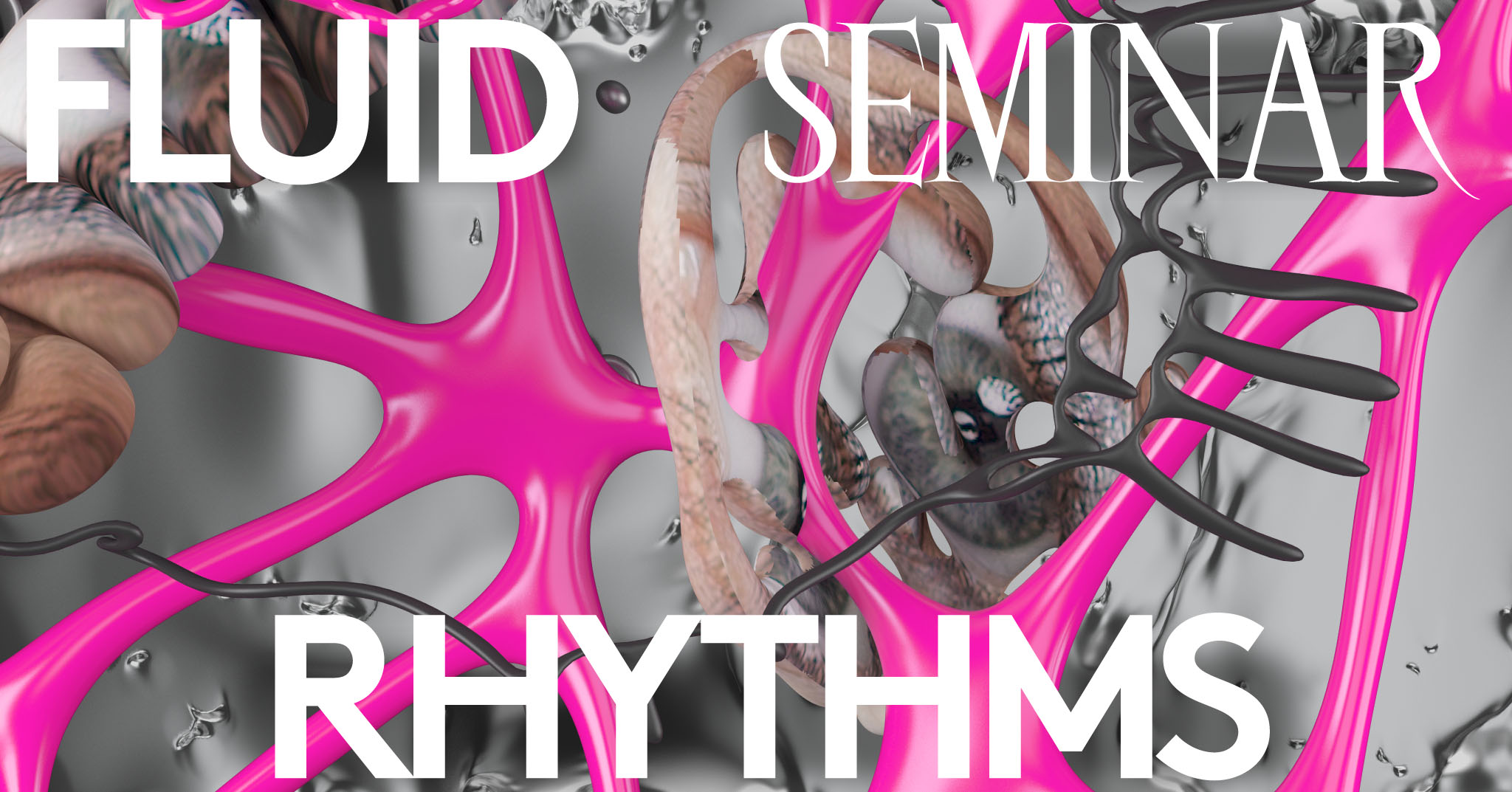- 2018-2019
- Rhythmanalysis in Context
- Theme
- Schedule
- Experts
- Location
- © 2012-2021
The Contextual Studies Seminar is a series of meetings that consist of lectures, readings, screenings and discussions on selected examples of practices, case studies, and texts, introducing the key concepts of the Open Set annual themes. The Seminar aims to generate an environment within the practice-led Open Set programme in which participants gain knowledge on specific themes of the annual programme, develop a set of useful methodologies to encounter related multidisciplinary theoretical sources, and articulate the position of their current practice within the introduced settings, terrains, fields or contexts.
Seminar: Rhythmanalysis in Context
21 Aug 2018–9 Feb 2019
In Amsterdam Zuidoost, or join online from anywhere
The Seminar offered both theoretical and practical context to the theme of ‘rhythm’, as part of the seven-month programme in design, art and humanities Fluid Rhythms, which consisted of a Summer School and LAB as well. The Seminar aimed to address the key concept of ‘rhythm’ in the fields of arts, urban planning, performance, and humanities and was hosted in collaboration with the scientific consortium Designing Rhythm for Social Resilience
(IS Amsterdam, University of Amsterdam, Delft University of Technology, Amsterdam Institute for Advanced Metropolitan Solutions)
. Together we investigated rhythm-led practices as common ground for research and artistic practice. The seminar aimed at practicing artists and designers, as well as researchers from different disciplines, interested members of the local community, activists, educators, curators and social servants, who are curious to discover the relevance of rhythms for their practice.
Theme
Fluid Rhythms: Urban Networks and Living Patterns
“The crowd is a body, the body is a crowd” — Henri Lefebvre
Life in the city both repeats itself, and is constantly changing. Situated in the Bijlmer, one of Amsterdam's most vibrant neighborhoods, Open Set launched a special programme, dedicated to exploring the potential of rhythm in the city. The movement of bodies in space; financial transactions; the circulation of sounds, cells, and smells; changing social constructs that divide and connect people; the flow of microscopic substances—such looping patterns generate dynamic complex structures, or ‘rhythms’, that shift over time. In the words of Caroline Nevejan: “Where there is rhythm, there is life”. Understanding and working with such dynamic complexities requires careful attunement to the interactions between social, imagined, and physical realms.
The Seminar offered an international and interdisciplinary setting that investigated the potential of rhythm-led practices as common ground for research and artistic work. This means both providing tools to perceive rhythms, as well as tools to tap into their generative potential. Rhythms occur on multiple levels at the same time, in the macro-level structures of the city, within the cells of bodies, and in the interconnections between mind, emotion, brain and heartbeats. By investigating the intertwined patterns of change, a world of subtle complexity starts to reveal itself to us in how humans, machines, animals and microbes interact and coexist.
Experts
- Amy Abdou — writer & researcher
- Heather Barnett — artist, researcher & educator
- Gavan Blau —cultural geographer & artist
- Sara Blokland — artist, researcher & curator
- Dash N’ Dem — design action group
- Adeola Enigbokan — artist & urbanist
- María Estrada-Fuentes — artist & researcher
- Jerzy Gawronski — researcher
- Satinder Gill — researcher
- Joseph D. Jordan — researcher
- Caroline Nevejan — researcher
- Thierry Oussou — artist
- Helen Pritchard (Citizen Sense) — artist & researcher
- Pinar Sefkatli — researcher, architect
- Cathalijne Smulders — artist
- Debra Solomon — artist, researcher
- Thought Collider — art, design & research duo
- Noam Toran — artist
- Rebekah Wilson — programmer & music performer
- Tao G. Vrhovec Sambolec — artist & musician
Schedule
| Date | Session |
| 21 AUG | Introduction: Rhythm as Territory |
| 20 OCT | Scales of Rhythms: From Bacteria to Crowd |
| 03 NOV | Scales of Rhythms: Through Body to Crowd |
| 17 NOV | Complexity of the Rhythms: Rhythm in Rhythm |
| 08 DEC | Traces of Rhythms: Heritage, Data and Fiction |
| 12 JAN | Traces of Rhythms: Friction, Tuning, Diffraction |
| 09 FEB | Designing with Rhythms (rescheduled) |
| 08 MAR | Wrap-up and public debate (part of the symposium 'On the Practice of Tuning-in' ) |
Location
The programme will be contextualised around the modern, historical, social and environmental frameworks of one of the most vibrant neighborhoods in Amsterdam Zuidoost (South East), in the Bijlmer residential area. All events are hosted and supported by the municipality and local cultural centres in Amsterdam Zuidoost.
Why participate?
- Access to a rich body of resources, methods and (online) materials on rhythmanalysis and cross-disciplinary perspectives in research and arts.
- Opportunity to contribute to the online publication published in the end of the programme;
- Unique opportunity to exchange with a wide range of experts and researchers, local cultural centers, and scientific partners;
- Collaboration with peers from all over the world, building an international network of colleagues from the background of arts, design, research. ;
- Experience in reflecting on your practice, focusing on potential directions of its development and on presenting it to the broader professional and general audience.
Credits
The programme is made possible by the support of the City of Amsterdam Zuidoost, Amsterdams Fonds voor de Kunst, Het Pauwhof Fonds, CBK Zuidoost, and has been organized in collaboration with the research group Designing Rhythm for Social Resilience (2018–2022). The visit of Heather Barnett is made possible by Het Nieuwe Instituut with support of the Ministry of Foreign Affairs.
Curatorial Team: Irina Shapiro, Dr. Caroline Nevejan, Pinar Sefkatli
Design: Studio The Rodina
Editor: Shailoh Phillips
